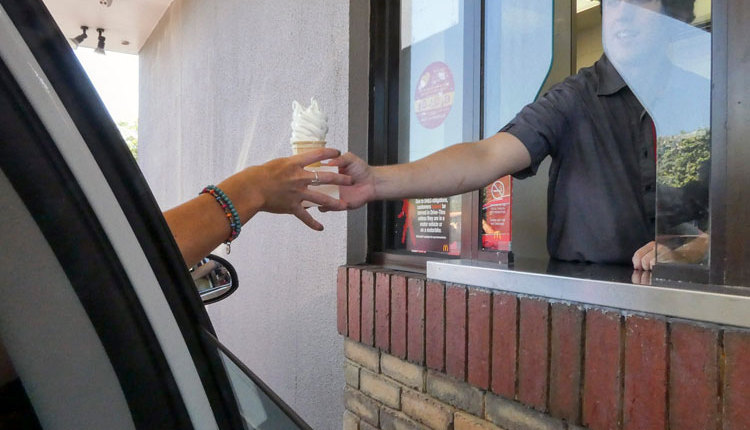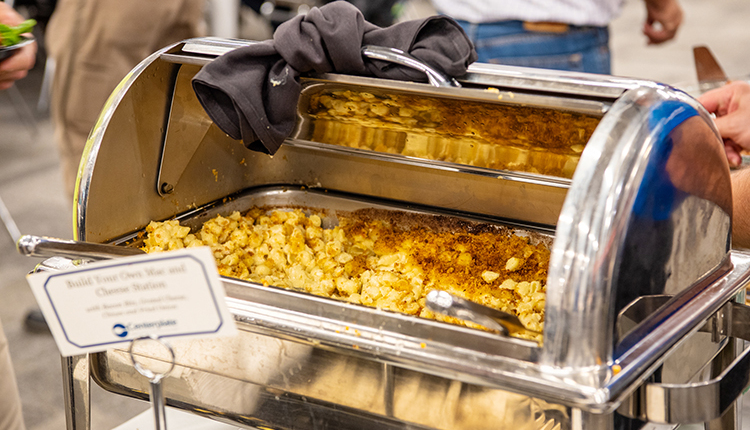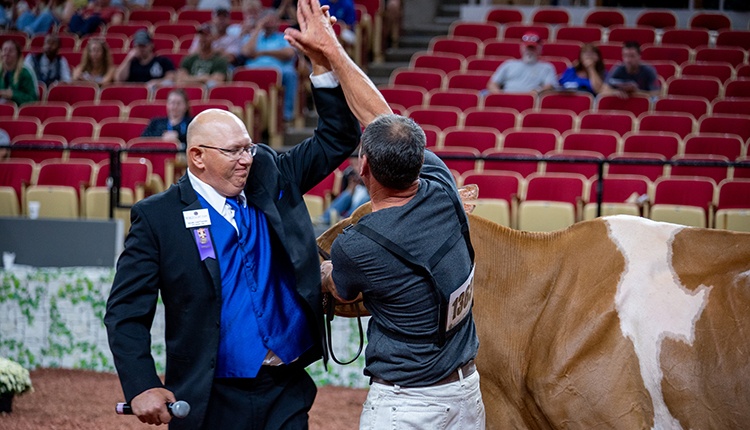Marcie Feine's passion for calves clearly shined through as she spoke at a Land O'Lakes calf event last month.
"I have the best job because I get the babies," she said.
Marcie and her husband, Glen, are former dairy farmers turned custom calf and heifer raisers from Rushford, Minn. The family-run operation has eight employees, including their daughter and son-in-law, two young granddaughters and Glen's father.
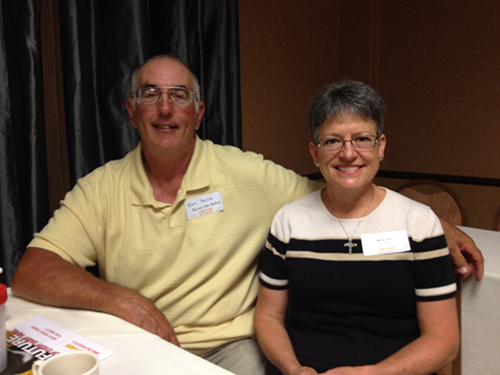
Glen and Marcie Feine, Rushford, Minn.
The Feines raise Holstein, Jersey and crossbred calves and heifers for five different farms. They house replacements from birth up to pregnancy confirmation.
Calves are fed a full potential ration, in which Marcie is a firm believer. "If they are not fed well from the beginning, they don't have much of a start," she said. Since amping up the calf feeding program, they are now able to wean at 7 weeks of age instead of 8 and still double birth weight. Their daughter, who manages the older animals and does the breeding, has noticed a marked change in the size of the heifers since incorporating the full potential calf feeding, Glen noted.
Another key to Marcie's success is posted written protocols for daily, weekly and monthly chores. Other factors that contribute to their healthy calves:
Cleanliness: They clean and disinfect twice daily, and autofeeders are washed using acid and extra hot water. "Everything that touches the babies' mouths is cleaned," Marcie said.
Individual attention: If a calf doesn't finish its milk, they take its temperature, no exceptions. All temperatures and health issues are documented in the treatment record.
Pain-free dehorning: Marcie is a proponent of pain-free dehorning, using sedatives and pain medication. "Calves have a great memory for kindness," Marcie said. Since updating her dehorning procedure, "Babies are never afraid to come up to me, never afraid to put heads through to the buckets," she said.
Marcie takes her job as a calf raiser seriously. "We are entrusted with the dairies' futures," she explained. "I want to do as good with their calves as if they were my own."
Fortunately, for Marcie this is a labor of love. "It's a lot of work, but I get to do what I love every day," she said.
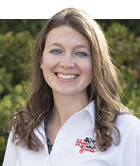
The author is an associate editor and covers animal health, dairy housing and equipment, and nutrient management. She grew up on a dairy farm near Plymouth, Wis., and previously served as a University of Wisconsin agricultural extension agent. She received a master's degree from North Carolina State University and a bachelor's from University of Wisconsin-Madison.
"I have the best job because I get the babies," she said.
Marcie and her husband, Glen, are former dairy farmers turned custom calf and heifer raisers from Rushford, Minn. The family-run operation has eight employees, including their daughter and son-in-law, two young granddaughters and Glen's father.

The Feines raise Holstein, Jersey and crossbred calves and heifers for five different farms. They house replacements from birth up to pregnancy confirmation.
Calves are fed a full potential ration, in which Marcie is a firm believer. "If they are not fed well from the beginning, they don't have much of a start," she said. Since amping up the calf feeding program, they are now able to wean at 7 weeks of age instead of 8 and still double birth weight. Their daughter, who manages the older animals and does the breeding, has noticed a marked change in the size of the heifers since incorporating the full potential calf feeding, Glen noted.
Another key to Marcie's success is posted written protocols for daily, weekly and monthly chores. Other factors that contribute to their healthy calves:
Cleanliness: They clean and disinfect twice daily, and autofeeders are washed using acid and extra hot water. "Everything that touches the babies' mouths is cleaned," Marcie said.
Individual attention: If a calf doesn't finish its milk, they take its temperature, no exceptions. All temperatures and health issues are documented in the treatment record.
Pain-free dehorning: Marcie is a proponent of pain-free dehorning, using sedatives and pain medication. "Calves have a great memory for kindness," Marcie said. Since updating her dehorning procedure, "Babies are never afraid to come up to me, never afraid to put heads through to the buckets," she said.
Marcie takes her job as a calf raiser seriously. "We are entrusted with the dairies' futures," she explained. "I want to do as good with their calves as if they were my own."
Fortunately, for Marcie this is a labor of love. "It's a lot of work, but I get to do what I love every day," she said.

The author is an associate editor and covers animal health, dairy housing and equipment, and nutrient management. She grew up on a dairy farm near Plymouth, Wis., and previously served as a University of Wisconsin agricultural extension agent. She received a master's degree from North Carolina State University and a bachelor's from University of Wisconsin-Madison.






